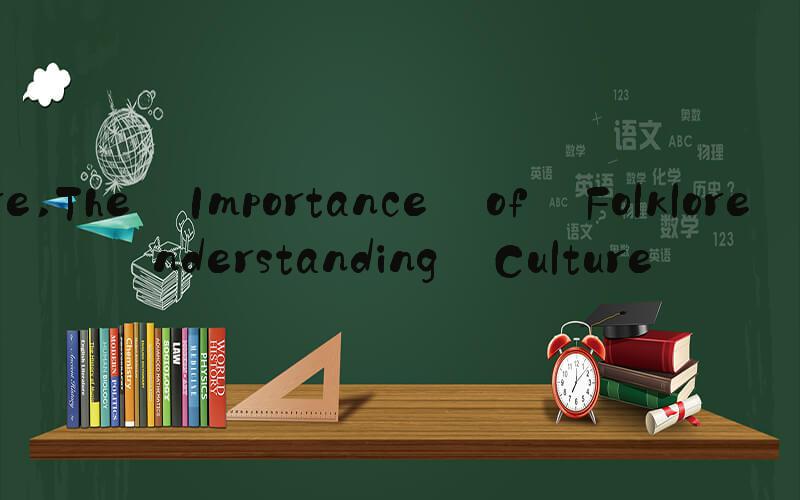
 Folklore: Exploring the Rich Tapestry of Human Culture
Folklore: Exploring the Rich Tapestry of Human CultureIn every culture across the world, there are stories and traditions passed down through generations. These stories are often referred to as folklore, and they provide a fascinating glimpse into the values, beliefs, and history of a society. Folklore can take many forms, including folktales, fairy tales, legends, myths, and customs. In this article, we will explore the diverse world of folklore, and how it has shaped our understanding of the human experience.
The Importance of Folklore in Understanding CultureFolklore can be considered a kind of shared currency that people within a culture trade. It is a way for people to connect with their history and express themselves. It is a way to understand their beliefs, hopes, and fears. Folklore has been used to celebrate triumphs and to make sense of tragedy. Many societies believe that folk stories and traditions connect them to the power and meaning that they hold sacred.
Moreover, folklore can help outsiders better understand the culture they are experiencing. When visiting a new place, the stories and traditions of the locals can provide insight into the values held by that society. Folklore can also act as a tool for cross-cultural understanding as it helps to bridge the gap between different societies and people.
The Origins of FolkloreThe origins of folklore are as old as human history itself. In many ancient cultures, stories were used to explain the workings of the natural world, to provide moral teachings, and to recount historical events. The oral tradition was the primary way that folklore was passed down through generations. As societies developed, their stories and traditions became more nuanced and complex.
Many old tales were written down and codified, becoming the fairy tales, legends, and myths that we know today. These stories have taken on a life of their own, becoming a part of the cultural fabric of many societies. They can be found in literature, art, film, and music.
The Role of Folklore in SocietyFolklore is a vital part of many societies, and it serves a myriad of purposes. It can be used to entertain, educate, and preserve cultural heritage. Many stories were created originally to reflect the unique experiences and challenges of a particular region or society. They provide a way for people to pass down their history and traditions, and to ensure that future generations understand where they come from.
Folklore can also provide a means of social commentary. Some stories are loaded with messages about what is right and wrong in society. They can be used to criticize the powerful or to highlight social injustice. Stories such as these can be a powerful tool for those who wish to bring about change in their society.
The Future of FolkloreFolklore is a living tradition and a continuing part of the human experience. In modern times, we are seeing a resurgence of interest in folklore as people realize the importance of cultural heritage. This interest is spurring new research and scholarship into the field, and new forms of folklore are emerging alongside traditional tales.
Moreover, the internet has allowed for the rapid dissemination of folk stories and traditions. Websites and blogs dedicated to myth and legend are becoming increasingly popular, and social media platforms allow people to share their own stories and experiences with others across the world. This creates opportunities for people to connect with others who share their interests and to learn about new cultures and traditions.
ConclusionIn conclusion, folklore is an essential part of the human experience. It provides insight into our shared history, our beliefs, and our values. When we explore the world of folklore, we are reminded of the importance of cultural heritage and the need to preserve it for future generations. Whether we tell stories around the campfire, read fairy tales to our children, or study the mythology of ancient societies, we are connecting with something deep and meaningful within ourselves and others.
